Our Blogs
Meet the women keeping our country moving
A blog for International Women's Day.
Rail staff continue to work under challenging conditions to make sure those who are travelling and vital freight loads get to where they are needed.
On International Women’s Day, meet some of the women who are keeping our country moving.
| Paige Lunn Train Driver, Southern 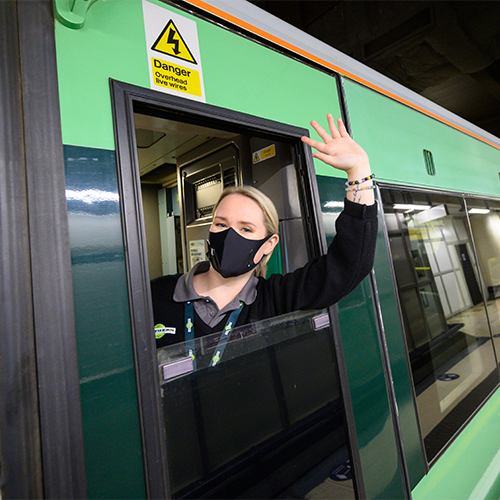 “I haven’t been treated any differently just because I’m a woman – I was the only female in my training class but that didn’t bother me. I’d love more women to join us, so what are you waiting for?” |
Emma Watson Station Manager, Network Rail 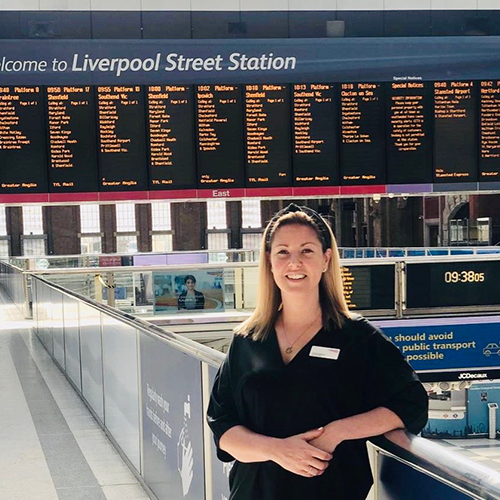 “Everyone is so motivated to do the right thing for staff and for passengers and without the collaboration or the support of my team, I just couldn’t have done it.” |
Beau Hawkins Train Driver, Great Northern 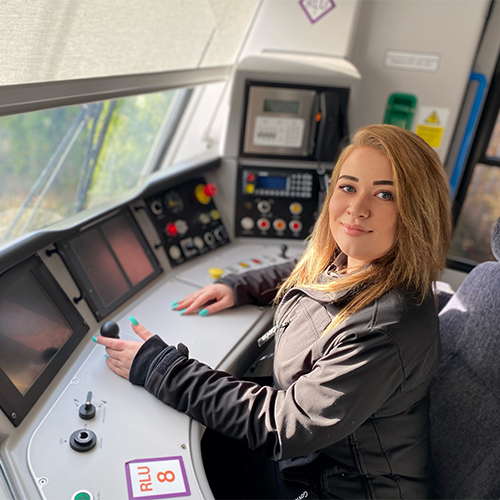 “For females young or old that are reading this, I would highly recommend a career as a train driver.” |
| Annila Saghir Train Manager, LNER 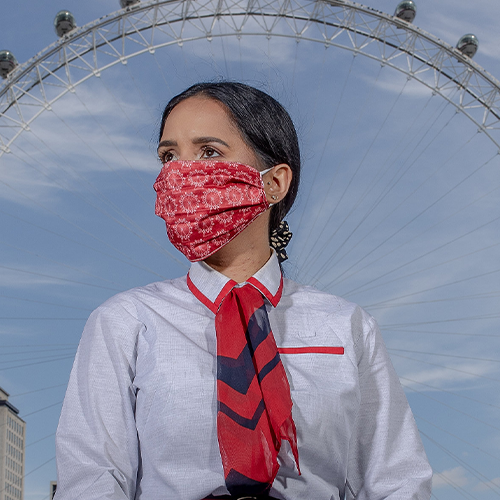 “I felt a sense of pride, taking NHS staff and other key workers up and down the country” |
Tori Weightman Train driver, LNER 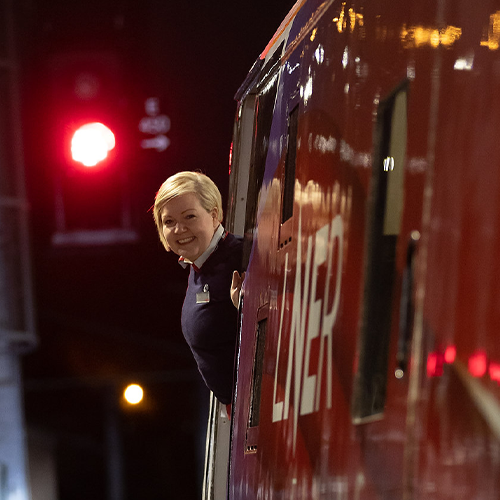 “I am so very lucky to have found my way onto the railway, the opportunities it has presented to me and the stability it has provided my family is a wonderful thing in this day and age.” |
Bobby Andrews Train Manager, Avanti West Coast  “It’s a really tough and challenging job but I work with great people. I have been working the same route for many years and because I see the same customers on our services – there is a sense of community. You become part of their lives and I Iove that.” |
| Jolene Miller Train Driver, Northern  “It’s been so surreal, I can’t believe it, I’m really proud but still in shock. There’s still lots of people I know working in the NHS and fighting coronavirus day in day out while I spent a few months working back in a hospital. I just wanted to use the skills I had.” |
Cara Marsh Station Manager, Transport for Wales Rail  “It has been my responsibility to ensure that we have put in place as many mitigations as necessary to keep staff in work and most importantly safe!” |
Kelly-Joe Ballard Train driver, Southeastern 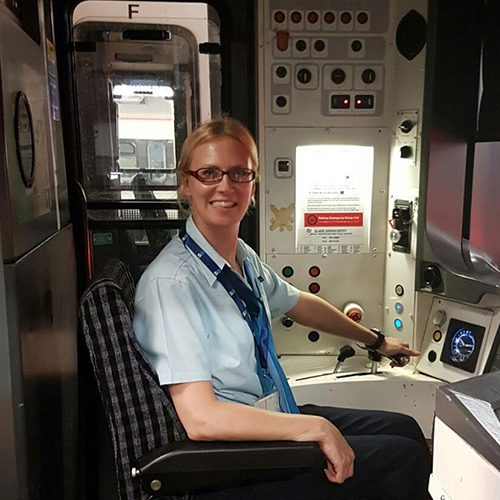 “It doesn’t matter what gender you are or what background you come from, if you have the will and determination to become a train driver, there really is nothing stopping you." |
Budget 2021: A vital step as the railway works to drive the national recovery from Covid-19
By Andy Bagnall, Director General of the Rail Delivery Group
While the budget obviously centred on the major macro-economic challenges of the Covid-19 pandemic, as I watched the Chancellor deliver his speech today, I was once again reminded of the railway’s importance to the UK’s wider recovery.
It is clear to see that the government is resolutely focused on a strong, green, economic recovery from the pandemic – and the railway will be essential to helping drive that. A healthy railway brings people together, supports businesses and jobs, and offers low-emission travel: three key ingredients that we must bear in mind as we get the country back onto its feet this year.
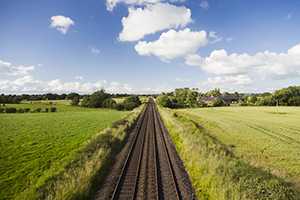 As an industry, we are excited by the prospect of helping the national revival, with familiar patterns finally becoming possible once more after a period of uncertainty. So the announcements around financial support for rail in the latest Budget are welcome news – both in the short term and for long term investment.
As an industry, we are excited by the prospect of helping the national revival, with familiar patterns finally becoming possible once more after a period of uncertainty. So the announcements around financial support for rail in the latest Budget are welcome news – both in the short term and for long term investment.
Thanks to the public’s commitment to the rules and the success of the vaccination programme, we are on the brink of relaxed restrictions and the start of a return to shops, restaurants, social gatherings and city centres over the coming months. This physical recovery will spark the nation’s wider economic recovery, and rail can help drive and accelerate this economic growth in a green way. But this depends on people returning to the railway and not the road, which would lead to an environmentally damaging car-led recovery.
To make train travel more attractive we should look at how we can make fares easier for people. This is particularly important as the budget confirmed that fuel duty would be frozen for the eleventh year running in the same week that the government implemented an above-inflation increase in train fares. Having spent billions of pounds keeping trains running during the pandemic it is understandable that the government wants returning passengers to pay their share. However, rebalancing the railway’s finances, and thereby easing the burden on taxpayers, requires more radical solutions. Passengers want an easier fares system and we want to work with government to push forward reform.
Raising the contactless payment limit to £100 can save people time when buying tickets and, if introduced alongside retail reform which sees pay-as-you-go across more of the network, has the potential to transform how far passengers can travel with the tap of their card – changing the game for longer distance commuters and helping to catalyse a truly national recovery. This could change how people think about how they travel by train after the pandemic.
This is one example of why today’s budget matters so much to the railway and its role in the recovery. Rail companies have worked hard throughout the pandemic to make sure passengers can travel with confidence and that the network is ready when restrictions lift to reconnect families and friends, businesses and clients, commercial centres and consumers. To capitalise on that, we now need to make the changes to fares and retail that will entice people back.
The budget also confirmed investment in several rail projects. Funding for the new Global Centre of Rail Excellence in Wales, the re-opening of Okehampton - Exeter to passenger services and the creation of new stations in the West Midlands builds on the continued delivery of improvements by rail companies during the pandemic, such as the continued introduction of new train carriages and upgrade work, including on the East Coast main line.
British business will gain from investment in new free ports, and the transport links to them, with rail freight companies poised to increase the £1.7 billion economic benefits they already deliver and help drive future trade opportunities.
The pandemic has shown us where we can adapt, change and improve – especially in rail. With the government’s support, the industry will be spending 2021 continuing to provide a reliable, punctual service drawing on the lessons learnt in the last year. By doing so, we will ensure that the railway is in the best possible shape to provide the up-to-date and fit for purpose service that customers need.
The railway will connect communities across the country, support job creation and businesses with new possibilities for travel, and deliver green alternatives to cars and planes. With 2021 set to be a year of new hope, new possibilities and new growth, the spending announced today will help the rail industry to play its part in driving the country forwards to recovery.
A ‘new deal’ for commuters
By Andy Bagnall, Director-General, Rail Delivery Group
The way we work has changed forever. Commuters need a new deal if they are to get back on board.
 On 1 March 2021, rail fares will increase by an average of 2.4%. In any normal year, this news would be met by wall-to-wall criticism in newspapers and on the airwaves. This is not a normal year, however. Given how few people are taking the train, many commuters will fail to notice the change altogether.
On 1 March 2021, rail fares will increase by an average of 2.4%. In any normal year, this news would be met by wall-to-wall criticism in newspapers and on the airwaves. This is not a normal year, however. Given how few people are taking the train, many commuters will fail to notice the change altogether.
Previously, governments of all colours have used increases to the fares that they control to cut the share the Exchequer pays for running the railways, with passengers paying more. While fuel duty has been frozen for a decade, rail fares have risen above inflation in 10 of the last 18 years.
Having spent billions of pounds keeping trains running during the pandemic it is understandable that the government wants returning passengers to pay their share. However, rebalancing the railway’s finances, and thereby easing the burden on taxpayers, requires more radical solutions.
For millions of people, the pandemic has shown that homeworking is not only possible but has considerable upsides. In future, commuting, certainly for five days a week, is going to be a more discretionary activity.
Key, then, is going to be making train travel as appealing as possible to get people back on board. A new deal, not just for commuters but also for leisure and business travellers too.
The first task is to make it easier for people to choose and pay for the best value fare.
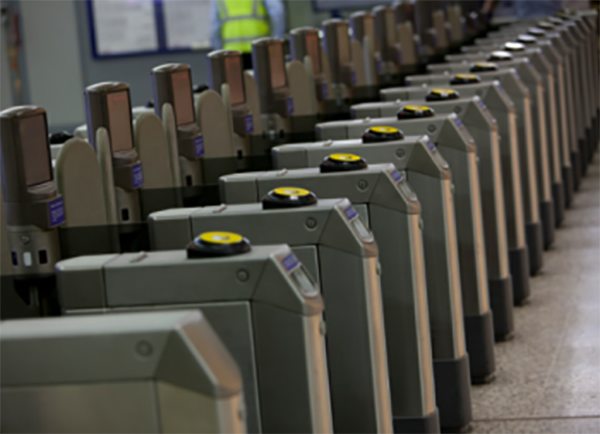 Commuters in every part of the country should benefit from a London-style tap-in-tap-out system. People automatically charged the best fare at the end of the week or month. No need for a crystal ball to know whether a daily, weekly or monthly ticket is going to be best value. This, combined with rewriting the rail fares rule book, would create the opportunity for new deals, priced attractively to make two, three or four trips into the office each week work financially.
Commuters in every part of the country should benefit from a London-style tap-in-tap-out system. People automatically charged the best fare at the end of the week or month. No need for a crystal ball to know whether a daily, weekly or monthly ticket is going to be best value. This, combined with rewriting the rail fares rule book, would create the opportunity for new deals, priced attractively to make two, three or four trips into the office each week work financially.
For business and leisure passengers, new fares rules could mean a better range of prices for walk up journeys on long distance trains and greater flexibility to mix-and-match different types of ticket. By spreading demand this would make today’s busy intercity services more comfortable. It would also make it easier for people to change their train time when a meeting overruns or they want an extra couple of hours at the end of their weekend away.
A new deal for passengers must extend beyond the fares they pay, however. In a changed world it will be more important than ever for private train companies, who know their customers better than anyone, to be agile and able to provide the kind of service people want to buy. How the railway industry is structured must change to enable this.
Commuters have grown used to considerably easier journeys (Route: Bedroom to Study via Kitchen). Business travellers are used to meeting clients virtually, not physically. Combined with residual concern about social distancing, if people are to choose to get back on a train they are going to want a great service. Extra space, better reliability and, for longer journeys, a seat. An internet connection stable enough to know they will not be unceremoniously dumped from a crucial Zoom meeting on their way into the office.
In the coming weeks, the government is set to publish what could be the most wide-ranging reforms to how the railway is run since privatisation in the 1990s.
Instead of the rigid, old franchising system there needs to be a fresh approach. There should be a new ‘guiding mind’ that balances the benefits of greater central coordination, over setting timetables for example, with letting local train companies innovate, invest and take on-the-ground decisions that will improve journeys. Harnessing the best of the private sector to provide paying customers with a service they want to use.
Train companies understand that the reasons people travel have changed fundamentally with the pandemic. They are ready to fight to win back passengers by providing them with a great service, because it matters, to revive the nation’s high streets and to avoid a damaging car-led recovery. A new deal for passengers is needed. The rail industry is ready and with the right government reforms we can unlock it.
LGBT+ history: reflecting on progress and campaigning for change
By Robert Nisbet, Director, Nations & Regions and sponsor of Platform, RDG’s employee network for LGBT+ people and allies
For LGBT+ History Month, Robert looks back on his personal history and his biggest inspiration.
My husband and I were reflecting the other day on our timing.
We’ve been fairly fortunate. I was born a couple of Parliamentary recesses after homosexuality was decriminalised in the United Kingdom, given the right to marry (albeit 18 years after our first date), and I am able to write this blog and fly the flag for the railway on national television without my sexuality ‘becoming the story’.
One hundred years ago we would have been jailed, two hundred years ago we could have been dangling from a noose, while up to the 17th century we could have faced an even more unpleasant end: being burned at the stake. So, all things considered, it’s not bad.
Of course, we’ve been subjected to homophobic abuse, have watched friends die from AIDS, endured the iniquities of Clause 28 and know that homosexuality remains illegal in over a third of all countries, but we try to push those thoughts from our minds when we’re eating our Weetabix.
But in LGBT+ history month, it’s important to remember those brave activists and advocates who have pushed back draconian laws and taken aim at injustice.
In this blog, I want to pay tribute to my personal inspiration: Peter Tatchell.
His tactics are often abrasive, he endured decades of vilification by the ‘red top’ tabloids and he has been a persistent irritant to those he challenges on the left and the right, but his impact is undeniable.
Born in Australia, he has made the United Kingdom his home, but his focus is global, and his courage extraordinary: the risks he takes to advance human rights have often proved injurious to his health.
For example, he tried twice to stage a citizen’s arrest of the late leader of Zimbabwe, Robert Mugabe, for his persecution of LGBT+ Africans. In the second attempt, he was beaten so badly by Mugabe’s bodyguards that twenty years later he still suffers from impaired vision and loss of memory from brain damage.
He was again at the receiving end of state-sponsored violence six years later for rebelling against the mayor of Moscow’s decision to ban a gay pride march in the city. He still returns to Russia to protest anti-LGBT+ laws despite being punched and hit with metal bars.
In the UK, he has been at the forefront of every attempt to flatten the hurdles that allowed LGBT+ people to be treated differently in law. He helped overturn bans on same sex couple adoption, gays serving in the military and then fought to enable civil partnerships, then same sex marriage.
His high-profile campaigning has brought hundreds of death threats; in his flat in south London, he sleeps with a fire extinguisher by his bed, in case of arson attacks.
But his fight is genuinely for equal rights, regardless of sexuality: he was instrumental in the recent court case which brought in a law allowing civil partnerships for men and women, as an alternative to marriage.
I met Peter a few times as a journalist and then, more recently, at the annual Attitude Awards, which was attended by, among others Prince Harry and Kylie Minogue.
Surrounded by that star wattage, I saw him sitting alone at a table in his thoughts - he’s a quiet man - as guests snapped selfies of several colourfully adorned contestants from RuPaul’s Drag Race.
To me, he was the real celebrity that evening.
I am pleased that we can take a moment every February to remember those who have made a tangible difference to millions of LGBT+ people.
Peter Tatchell is a shining example and his Foundation continues to vociferously promote human rights all over the world.